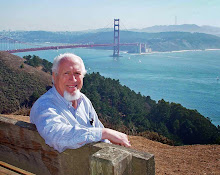So now, the question is “What kind of a person is psychic?” From the beginning of the popular use of personality tests in the 1940’s psychologists have been trying to find the answer to this question. What type of a person, what kind of a mind sees the future in dreams, or hears warnings from voices, or senses the presence of spirits? The answer is beginning to take shape.
In earlier postings to this blog I have detailed much of what has been found. Psychics are able to keep their cool in the mist of confusion. They are creative and many of the artists of all kinds have had psychic experiences to tell. At the time of their psychic flashes a person is self confident and sure of themselves. A psychic is typically a person who is in the mood to reach out and include people in their lives, extroverted. Quite often a feeling of disassociation accompanies a psychic experience. Yet psychic ability also is accompanied by a greater than average stability. And finally those who do will on ESP tests are observed to be in the more spontaneous group. All of these traits are considered “Socially desirable” by our society. Yet people in our society continue to have problems when they reveal their psychic ability. As we can see by the results of a Gallop Poll. Though 73% believed in one of the list of “paranormal items” including witches and astrology. When individual paranormal beliefs were tallied they found that, for instance, only 41% of those interviewed believed in ESP.
One of the most interesting things about the personality profile that has been drawn up in the “typical psychic” is that it also seems to fit the “typical entertainer.” I like to occasionally use some incident reported by entertainers because I can also easily find biographical information about them. It is easy to find quite a few incidents. Dick Kleiner, the Hollywood columnist said, “A surprisingly large percentage did have a tale to tell me (about their psychic experiences). I estimated that 75% of the show business people I have interviewed claim they have ESP in varying degrees.”
There are two main areas of research into “parapsychology,” as the broad study is called. There is the gathering and analysis of incidents telepathy, dreaming the future, ghosts, etc.; then there are the researchers who attempt to bring these psychic things into the laboratory. Case histories, or spontaneous psychic phenomena are the best type to study in order to chart the hidden depths of the unconscious.
Spontaneous psychic phenomena are the things that have come without our asking. The dictionary defines spontaneous as “arising from a momentary impulse not apparently contrived nor manipulated.” And things that show a person to be psychic show him to be “sensitive to nonphysical or supernatural forces and influences.” By “non- physical” we mean “not within our present understanding of the physical or natural.” Of course, these are only apparently uncontrived or manipulated and much of what interests me is the mental activity involved.
What has been called “extrasensory perception” I find is simply a sensory perception, but one that is only used occasionally; and one has resisted easy study. So spontaneous psychic events will tell us about the activities in the person’s mind that will govern the emergence of these rarely used senses.
http://www.gallup.com/poll/16915/Three-Four-Americans-Believe-Paranormal.aspx#1
Kleiner, Dick. “The Ghost Who Danced with Kim Novak.” New York: Ace Publishing Corp., 1969.
Saturday, October 18, 2008
Subscribe to:
Post Comments (Atom)


No comments:
Post a Comment